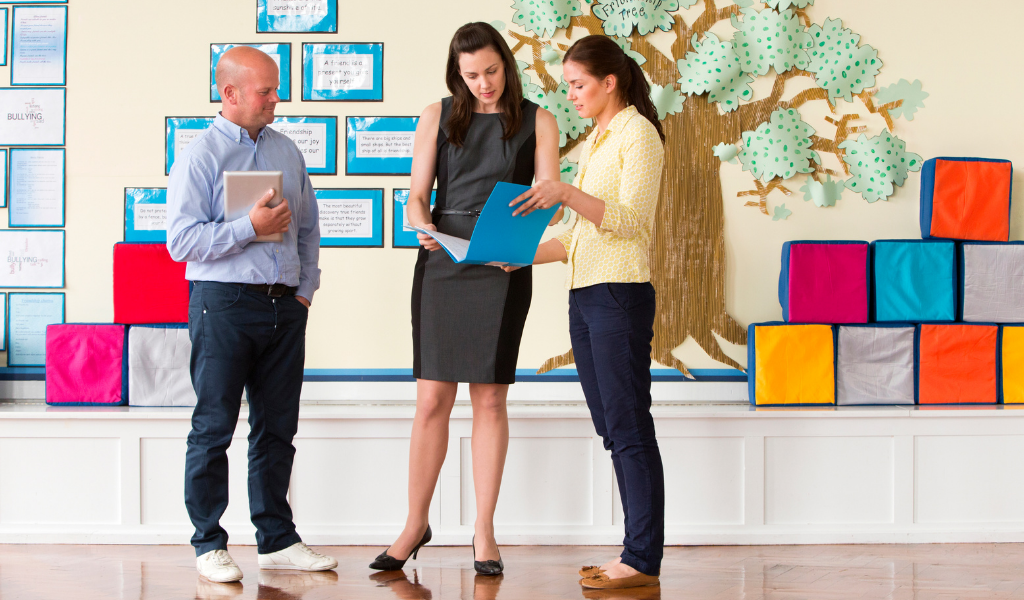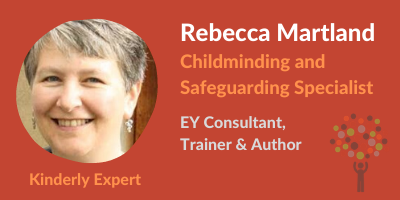Are you dreading ‘the call’? In the first of this two-part blog, our early years expert and ‘Outstanding’ Childminder, Rebecca Martland, will allay your fears and dispel some of the myths that cause such apprehension when that phone rings. Let’s have a look…
After being halted in February 2020 due to the Coronavirus pandemic, full onsite Ofsted inspections resumed on 4th May 2021.
This pause in inspections means that any setting due to be inspected before the end of the last inspection cycle (1st August 2016 – 31st July 2020) will have been missed out, as will have newly registered settings who are normally inspected within 30 months of registration. This means Ofsted are currently having to play catch up and prioritise those settings most in need of an inspection, including:
When will I be inspected?
As a result of the Covid-19 pandemic, routine Ofsted inspections were halted in March 2020 and did not resume until May 2021. This pause in inspections meant that settings due to be inspected before the end of the last inspection cycle (1st August 2016 – 31st July 2020) were missed, as were many newly registered settings who would normally be inspected within 30 months of registration.
Following a short transition period over summer 2021 Ofsted moved from a 4-year inspection cycle to a new 6-year inspection window, meaning that settings are now inspected at least once within 6 years of their last inspection date. The timing of the actual inspection will be determined by:
Ofsted will always prioritise those settings they consider most in need of an inspection, including:

In September 2019, Ofsted introduced a new Education Inspection Framework with an accompanying Early Years Inspection Handbook. This is the guidance to the procedures that Ofsted will follow when inspecting settings. It still feels new as it had only been in use for a few months when inspections stopped.
Ofsted are aware of and sensitive to people’s anxieties and the affect the pandemic has had on the sector as a whole. The Early Years Inspection Handbook has been updated to reflect these concerns and inspectors have had refresher training to ensure that inspections go smoothly.
The government have also published an extensive guidance document called Actions for early years and childcare providers during the coronavirus (COVID-19) outbreak that includes a section on the system of controls that should be considered when visitors enter the setting, including sanitising and hand washing, cleaning and whether or not masks should be worn. Inspectors should discuss what procedures you want them to follow during the initial telephone call.
Irrespective of the pandemic, inspectors will continue to focus on the core question: What it is like to be a child here?

Inspections will be conducted under the revised EYFS (2021), which came into force on 1st September 2021.
Inspectors will contact group settings at around mid-day the day before the inspection.
Childminders (and group settings that open irregular hours) will receive a call up to 5 days prior to their inspection. The inspector will not say which day they are coming but will gather information to try to ensure they come on a day the setting is operating with children. If that is not possible, they will usually go ahead with a ‘no children on roll’ inspection which will result in a ‘met’ or ‘not met’ judgement rather than a grade.
As a result of the pandemic, the phone call may be longer than usual as the inspector will need to find out additional information. If necessary, they will call back at a more convenient time, or split the call into two.
The phone call is not part of the inspection. It is for you and the inspector to introduce yourselves and for the inspector to gather information about the setting, including:
The inspector should also advise you of Ofsted’s privacy notice, the requirement to inform parents of the inspection, what paperwork will be required (see paragraph 59 of the Early Years Inspection Handbook), and the general arrangements for the inspection.

As well as their usual questions, the inspector will agree with you any safety protocols you have in place that they need to follow and will comply with the latest guidance on testing.
They will want to talk to you about the impact of Covid-19 has had and is still having on the setting and discuss with you any ongoing concerns you may have, such as:
Now you can read part 2 of this blog where Rebecca looks at the format of the inspection day itself.
You can now watch Rebecca’s latest webinar on ‘The Return of Ofsted: Are you ready?’ available for Kinderly members. Not a Kinderly member? That’s okay – you can subscribe for less than £2 per week to access all of our early years CPD-accredited webinars and micro-courses.

About Rebecca
Rebecca Martland has 20 years’ experience in the early years sector: as a childminder, she has received an Outstanding grade from Ofsted for four consecutive inspections. She is an Early Years consultant, trainer, author and Nursery World Awards judge. She is also a qualified teacher and Early Years Professional.